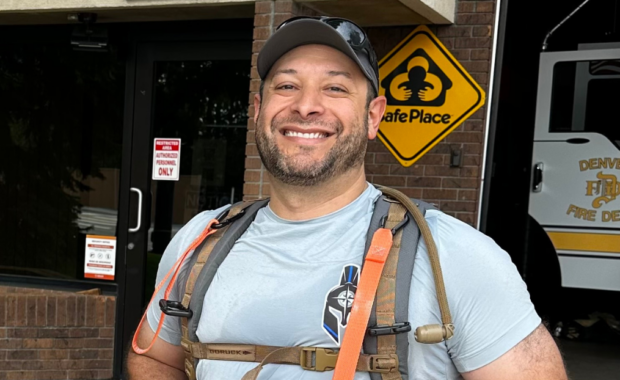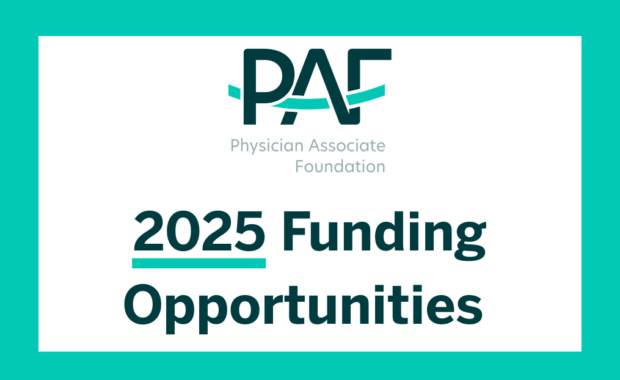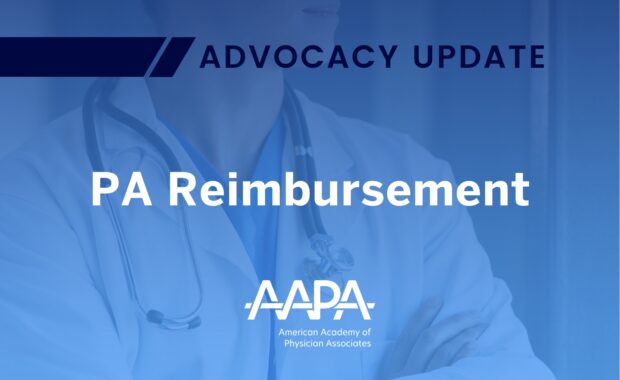PA Preparedness: How You Can Help when Disaster Strikes
PA Serves as Boots on the Ground for Hurricane Laura
October 9, 2020
By Jenni Roberson
The history books may very well record all of 2020 as a “disaster,” but the need for PAs in emergency response medicine goes beyond the front lines of COVID-19. Pandemic or no pandemic, hurricane season comes every year.
While serving in emergency response for Hurricane Laura in Lake Charles, Louisiana, Jeffrey Mott, DHSc, PA-C, experienced what it’s like to take part in emergency response when disasters collide.
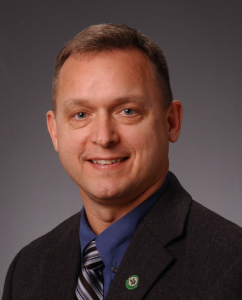
“The pandemic has definitely altered the way that we respond to disasters,” Mott says. “In Lake Charles, we were all wearing masks and socially distancing, limiting personnel in each vehicle, driving around with the windows down in very hot weather and doing what we could to limit the possibility of transmission to keep each other safe. We did what we had to do to be able to accomplish the mission, and COVID-19 just made it more difficult. It was just another challenge we were happy to take on in order to help the community.”
Team medic for Team Rubicon
On the ground in Lake Charles, Mott served as team medic/safety officer for a nine-person route clearance team with the mission of clearing the roads littered with debris in the aftermath of the hurricane.
Grow your network, find a mentor, and more – join or renew your membership today
Mott is an assistant professor at the Health Science Center of Fort Worth where he is full-time faculty at the Physician Assistant Studies Program – and a PA volunteer with Team Rubicon, a national organization with a mission to provide relief to those affected by disaster by pairing the skills and experiences of military veterans with first responders, medical professionals, and technology solutions.
As an Army veteran who served for nearly 25 years, Mott said he was drawn to the veteran roots of the organization. However, Team Rubicon volunteers are not all veterans, and Mott says there is a need for more medical providers to join the team.
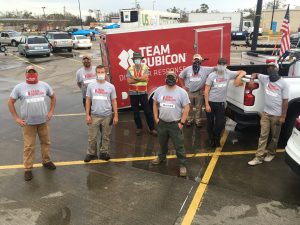
“In response to COVID-19, Team Rubicon expanded their capabilities; one of which was domestic medical operations,” Mott says. “The organization is always looking for PA volunteers to help our COVID-19 response as well as future medical operations.”
Get proper training for disaster response
But before signing up for any emergency response team, Frank Caruso DMSc, PA-C, EMT-P, and deputy commander of a Disaster Medical Assistance Team (DMAT) in North Carolina, urges PAs to get proper training.
“Mass casualty triage and disaster medicine are significantly different than anything you’ve learned in PA school,” says Caruso. “We’re taught to provide the most service to every single patient. But in an austere environment, that’s not the rule anymore. You’ve got to provide the most service to the most number of patients based on the limited resources you have.”
Caruso, who is also the contact for the AAPA Special Interest Group Disaster Medicine Association of PAs recommends that PAs be CPR-certified and have training in Advanced Disaster Medical Response, Advanced Disaster Life Support, and International Trauma Life Support.
[How PAs Can Use Their Skills in Disaster Medicine]
Mott can attest to the importance of early training and preparation with an emergency team before jumping in. Several months ago, after first signing up on the Team Rubicon, he completed the required training sessions – before the COVID-19 hit the U.S. – and was at-the-ready when he was needed.
In today’s healthcare environment, taking on additional training and volunteer efforts certainly comes with many challenges, Mott says.
“Many of us have families and jobs with a busy schedule that are not easy to walk away from at a moment’s notice. I was called at noon the day before I departed to Hurricane Laura the next day at noon. If I had a fully booked clinic, as many PAs do, it would have been much more difficult to volunteer for such a short notice mission.”
And once in the thick of things, it doesn’t get any less stressful, Mott says.
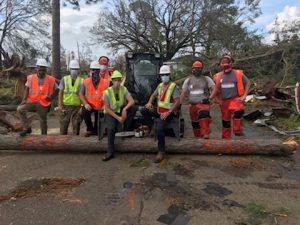
Consider the disaster environment
“The austere environment needs to be taken into consideration when volunteering for a disaster response team,” Mott says. “Quite often the power, water, phone service, etc. are the first things to go, and the PA who is volunteering needs to be ready to eat military Meals Ready to Eat (MREs), drink warm water, and sleep on the ground or in a vehicle until a base can be established. That way of living isn’t for everyone.”
However, Mott encourages PAs who feel called to take part in disaster medicine to talk to their employers to explore what kind of flexibility they can allow and to also look for various opportunities.
“I have so much support from the University in keeping with our value of ‘Serve Others First’ and am encouraged to volunteer when time permits in my busy schedule,” Mott says. “This allows me some wiggle room for volunteer opportunities. I would encourage PAs to look into what is available in their area to see if they can at least connect with a local Community Emergency Response Team (CERT).”
Jenni Roberson is director, Media Relations at AAPA. Contact her at [email protected].
You May Also Like
How to Help Provide Emergency Disaster Services
Emergency Preparedness and Response Training Resources
After Disasters, PAs Step In to Provide Critical Medical Care
Thank you for reading AAPA’s News Central
You have 2 articles left this month. Create a free account to read more stories, or become a member for more access to exclusive benefits! Already have an account? Log in.
